Contents
| ALSO BY A TUL G AWANDE |
|
| Complications: |
| A Surgeon's Notes on an Imperfect Science |
Better
A S URGEON'S N OTES
ON P ERFORMANCE
Atul Gawande
|
|
| Metropolitan Books |
| Henry Holt and Company |
| New York |

Metropolitan Books
Henry Holt and Company, LLC
Publishers since 1866
175 Fifth Avenue
New York, New York 10010
www.henryholt.com
Metropolitan Books(r) and

(r) are registered
trademarks of Henry Holt and Company, LLC.
Copyright (c) 2007 by Atul Gawande
All rights reserved.
Distributed in Canada by H. B. Fenn and Company Ltd.
Several of these chapters have appeared, in different form, in
The New Yorker and The New England Journal of Medicine
Library of Congress Cataloging-in-Publication Data
Gawande, Atul.
Better : a surgeon's notes on performance / Atul Gawande.--1st ed.
p. cm.
ISBN-13: 978-0-8050-8211-1
ISBN-10: 0-8050-8211-5
1. Gawande, Atul. 2. Internal medicine--Case studies. 3. Medicine-- Miscellanea. I. Title.
RC66.G392007
616--dc22
2006046962
Henry Holt books are available for special promotions and
premiums. For details contact: Director, Special Markets.
First Edition 2007
Designed by Meryl Sussman Levavi
Printed in the United States of America
1 2 3 4 5 6 7 8 9 10
For my parents and sister
Introduction
S everal years ago, in my final year of medical school, I took care of a patient who has stuck in my mind. I was on an internal medicine rotation, my last rotation before graduating. The senior resident had assigned me primary responsibility for three or four patients. One was a wrinkled, seventy-something-year-old Portuguese woman who had been admitted because--I'll use the technical term here--she didn't feel too good. Her body ached. She had become tired all the time. She had a cough. She had no fever. Her pulse and blood pressure were fine. But some laboratory tests revealed her white blood cell count was abnormally high. A chest X-ray showed a possible pneumonia--maybe it was, maybe it wasn't. So her internist admitted her to the hospital, and now she was under my care. I took sputum and blood cultures and, following the internist's instructions, started her on an antibiotic for this possible pneumonia. I went to see her twice each day for the next several days. I checked her vital signs, listened to her lungs, looked up her labs. Each day, she stayed more or less the same. She had a cough. She had no fever. She just didn't feel good. We'd give her antibiotics and wait her out, I figured. She'd be fine.
One morning on seven o'clock rounds, she complained of insomnia and having sweats overnight. We checked the vitals sheets. She still had no fever. Her blood pressure was normal. Her heart rate was running maybe slightly faster than before. But that was all. Keep a close eye on her, the senior resident told me. Of course, I said, though nothing we'd seen seemed remarkably different from previous mornings. I made a silent plan to see her at midday, around lunchtime. The senior resident, however, went back to check on her himself twice that morning.
It is this little act that I have often thought about since. It was a small thing, a tiny act of conscientiousness. He had seen something about her that worried him. He had also taken the measure of me on morning rounds. And what he saw was a fourth-year student, with a residency spot already lined up in general surgery, on his last rotation of medical school. Did he trust me? No, he did not. So he checked on her himself.
That was not a two-second matter, either. She was up on the fourteenth floor of the hospital. Our morning teaching conferences, the cafeteria, all the other places we had to be that day were on the bottom two floors. The elevators were notoriously slow. The senior resident was supposed to run one of those teaching conferences. He could have waited for a nurse to let him know if a problem arose, as most doctors would. He could have told a junior resident to see the patient. But he didn't. He made himself go up.
The first time he did, he found she had a fever of 102 degrees and needed the oxygen flow through her nasal prongs increased. The second time, he found her blood pressure had dropped and the nurses had switched her oxygen to a face mask, and he transferred her to the intensive care unit. By the time I had a clue about what was going on, he already had her under treatment--with new antibiotics, intravenous fluids, medications to support her blood pressure--for what was developing into septic shock from a resistant, fulminant pneumonia. Because he checked on her, she survived. Indeed, because he did, her course was beautiful. She never needed to be put on a ventilator. The fevers stopped in twenty-four hours. She got home in three days.
W HAT DOES IT take to be good at something in which failure is so easy, so effortless? When I was a student and then a resident, my deepest concern was to become competent. But what that senior resident had displayed that day was more than competence--he grasped not just how a pneumonia generally evolves and is properly treated but also the particulars of how to catch and fight one in that specific patient, in that specific moment, with the specific resources and people he had at hand.
People often look to great athletes for lessons about performance. And for a surgeon like me, athletes do indeed have lessons to teach--about the value of perseverance, of hard work and practice, of precision. But success in medicine has dimensions that cannot be found on a playing field. For one, lives are on the line. Our decisions and omissions are therefore moral in nature. We also face daunting expectations. In medicine, our task is to cope with illness and to enable every human being to lead a life as long and free of frailty as science will allow. The steps are often uncertain. The knowledge to be mastered is both vast and incomplete. Yet we are expected to act with swiftness and consistency, even when the task requires marshaling hundreds of people--from laboratory technicians to the nurses on each change of shift to the engineers who keep the oxygen supply system working--for the care of a single person. We are also expected to do our work humanely, with gentleness and concern. It's not only the stakes but also the complexity of performance in medicine that makes it so interesting and, at the same time, so unsettling.
Recently, I took care of a patient with breast cancer. Virginia Magboo was sixty-four years old, an English teacher, and she'd noticed a pebblelike lump in her breast. A needle biopsy revealed the diagnosis. The cancer was small--three-quarters of an inch in diameter. She considered her options and decided on breast-conserving treatment--I'd do a wide excision of the lump as well as what's called a sentinel lymph node biopsy to make sure the cancer hadn't spread to the lymph nodes. Radiation would follow.
The operation was not going to be difficult or especially hazardous, but the team had to be meticulous about every step. On the day of surgery, before bringing her to the operating room, the anesthesiologist double-checked that it was safe to proceed. She reviewed Magboo's medical history and medications, looked at her labs in the computer and at her EKG. She made sure that the patient had not had anything to eat for at least six hours and had her open her mouth to note any loose teeth that could fall out or dentures that should be removed. A nurse checked the patient's name band to make sure we had the right person; verified her drug allergies with her, confirmed that the procedure listed on her consent form was the one she expected. The nurse also looked for contact lenses that shouldn't be left in and for jewelry that could constrict a finger or snag on something. I made a mark with a felt-tip pen over the precise spot where Magboo felt the lump, so there would be no mistaking the correct location. Early in the morning before her surgery, she had also had a small amount of radioactive tracer injected near her breast lump, in preparation for the sentinel lymph node biopsy. I now used a handheld Geiger counter to locate where the tracer had flowed, and confirmed that the counts were strong enough to indicate which lymph node was the "hot" one that needed to be excised. Meanwhile, in the operating room, two nurses made sure the room had been thoroughly cleaned after the previous procedure and that we had all the equipment we needed. There is a sticker on the surgical instrument kit that turns brown if the kit has been heat-sterilized and they confirmed that the sticker had turned. A technician removed the electrocautery machine and replaced it with another one after a question was raised about how it was functioning. Everything was checked and cross-checked. Magboo and the team were ready.

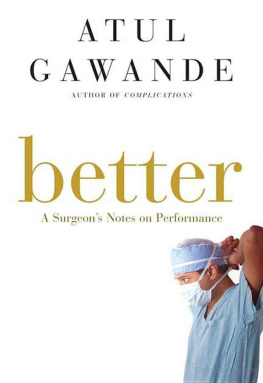
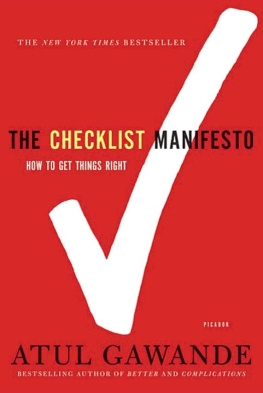
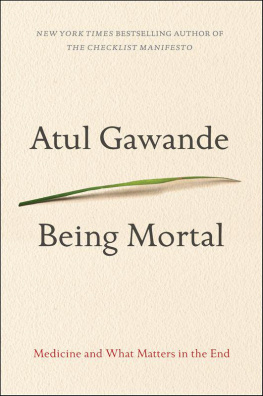
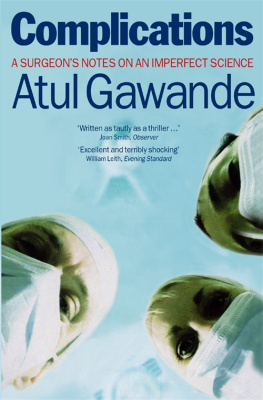
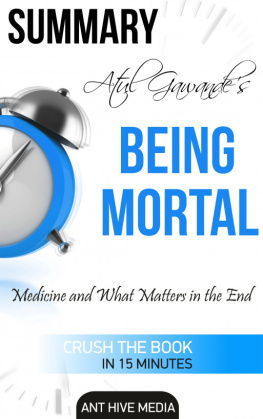
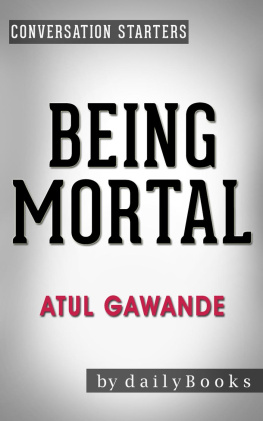


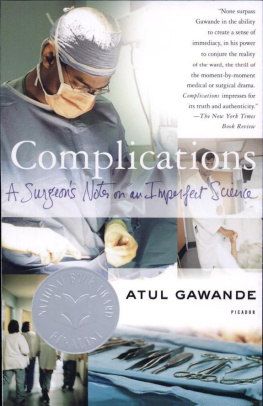
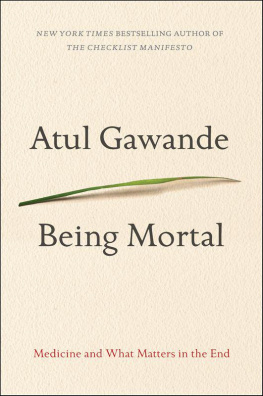
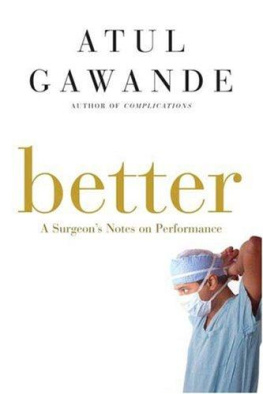

 (r) are registered
(r) are registered